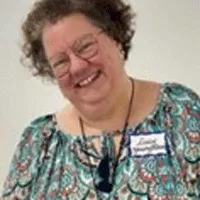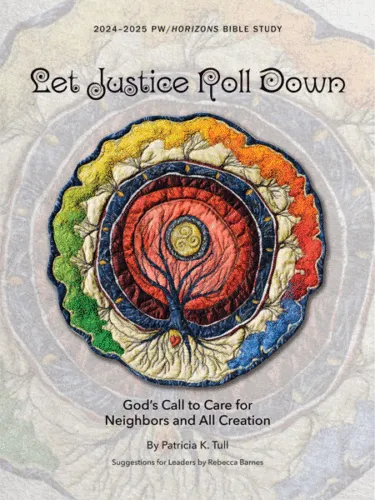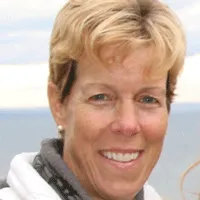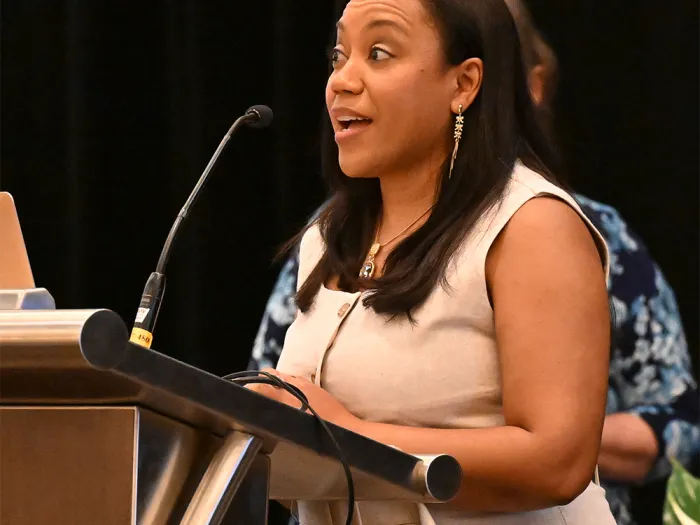‘Let Justice Roll Down’
Presbyterians for Earth Care is offering a monthly webinar on the Presbyterian Women/Horizons Bible study for 2024-25


LOUISVILLE — On Sunday, Presbyterians for Earth Care rolled out the first of nine monthly online sessions exploring “Let Justice Roll Down: God’s Call to Care for Neighbors and All Creation,” the 2024-25 Presbyterian Women/Horizons Bible Study. The leaders for the study, written by the Rev. Dr. Patricia K. Tull, Professor Emerita of Old Testament at Louisville Presbyterian Theological Seminary, are the Rev. M. Courtenay Willcox and the Rev. Lucy Youngblood.
Willcox is transitional pastor at Tree of Life Church in Springfield, Pennsylvania. Youngblood is parish associate at Shandon Presbyterian Church in Columbia, South Carolina. Youngblood is a nurse technician in the trauma unit of a Columbia hospital. PEC’s Mindy Hidenfelter put on the webinar.

Webinar participants began by watching a talk that Tull recorded on Lesson One, “Environmental Justice,” which explores these verses from the prophet Ezekiel: 33:21, 34:8; 17 and 18-19. Here’s Tull’s translation of verses 18-19: “Is it not enough for you to feed on the good pasture? Must your feet also trample what remains of your pasture? When you drink of clear water, must you pollute the rest with your feet? And must my sheep eat what you have trampled with your feet, and drink what you have polluted with your feet?”
“Though written long before modern pollution evolved, it’s a straightforward image of what pollution looks like,” Tull said. “Ezekiel understood quite well that resource greed of some meant degradation and disease for others.”

In “Let Justice Roll Down,” Tull quotes this Environmental Protection Agency definition: “Environmental Justice is the fair treatment and meaningful involvement of all people regardless of race, color, national origin or income with respect to the development, implementation, and enforcement of environmental laws, regulations, and policies. Fair treatment means no group of people should bear a disproportionate share of the negative environmental consequences resulting from industrial, governmental and commercial operations or policies.”
As Tull points out, it’s only in the past four decades that we even had a name for environmental justice. Dr. Robert Bullard conducted a landmark study, “Dumping in Dixie,” documenting the placement of landfills near Black neighborhoods throughout Houston. In 2007, Bullard contributed to “Toxic Wastes and Race at 20, 1987-2007,” a United Church of Christ report.
Commissioners to the PC(USA)’s 226th General Assembly had a lot to say about environmental justice, approving an overture on becoming free from plastic pollution and a paper on lithium mining. The Assembly’s Environmental and Climate Justice Committee also heard an update on environmental justice and the costs of green transitions.

“By telling stories of those who are working for justice,” Tull said, “we can become more aware of what our role can be.”
Webinar participants were divided into small groups to discuss questions including:
- What similarities do you see between Ezekiel’s metaphor of the sheep and environmental inequities today? What differences do you see?
- Read the EPA statement out loud. What does this articulation of environmental justice include? What surprises, if any, do you discover?
- Why do you think fair treatment is paired with meaningful involvement in the EPA statement? What might be some roadblocks to meaningful involvement?
- What examples have you seen of various pollutants mentioned in this lesson, or others?
- It is easier to point out environmental harms than to correct them. Can you recall efforts you have made or seen that address such problems in your community? What has resulted?

Tull will be joining one of the future webinars, as will the Rev. Rebecca Barnes, coordinator of the Presbyterian Hunger Program. Barnes wrote the Bible study’s “Suggestions for Leaders.”
“Friends,” Willcox said as the 75-minute session came to a close, “this time together made my heart very happy. Thank you.”
Presbyterians for Earth Care will offer the remainder of the “Let Justice Roll Down” Bible study on the fourth Sunday of each month through May at 7 p.m. Eastern Time. Upcoming dates are Oct. 27, Nov. 24, Dec. 22, Jan. 26, Feb. 23, March 23, April 27 and May 25. Learn more here.
You may freely reuse and distribute this article in its entirety for non-commercial purposes in any medium. Please include author attribution, photography credits, and a link to the original article. This work is licensed under a Creative Commons Attribution-NonCommercial-NoDeratives 4.0 International License.


